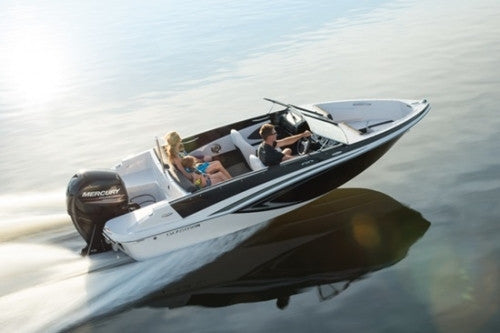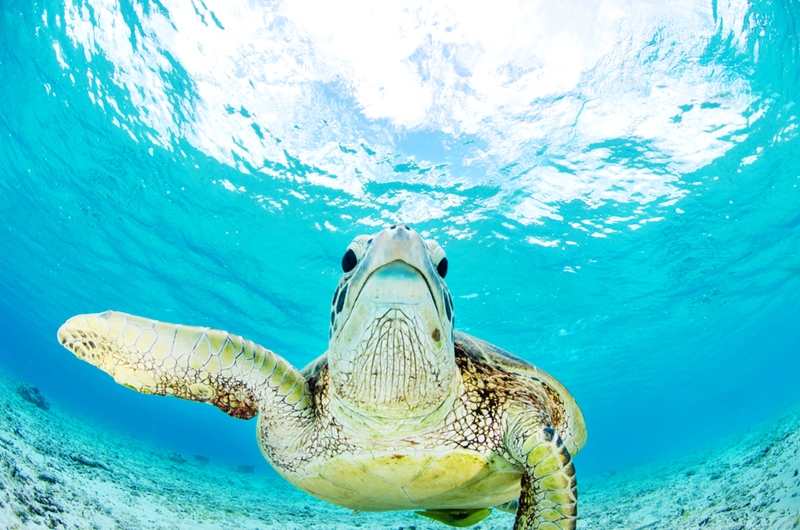
Chances are, if you love boats you also love the sea. Having respect for the marine environment should be important for all boaties, as even recreational boating can have a significant impact on aquatic ecosystems. Preventing spills, using eco-friendly cleaning products and recycling materials goes a long way towards protecting the water and preserving the environment for future generations. No matter what kind of boat you have, be sure to follow these simple tips for green boating.
1. Keep your boat in good condition
Maintenance is standard procedure for all boat owners, but keeping your vessel shipshape also has the added benefit of being more environmentally friendly. Regularly checking engine seals and fluid lines will prevent pollution from spills. Repair any oil and fuel leaks as soon as you spot them, or bring your boat in for a service.
2. Reduce your fuel usage
Keeping an eye on your fuel usage will help save money as well as the environment. As mentioned above, routine maintenance is vital to keeping your engine functioning efficiently and keeping fuel usage down. A problematic engine, dirty hull or damaged propeller can impact the boat's performance and fuel efficiency, so it's important to make sure everything is operating smoothly. You can also assess the amount of weight you have on your boat: do a spring clean and get rid of any unnecessary junk you may have been lugging around.
Respecting the marine environment is important for boaties, as recreational boating can have a significant impact on aquatic ecosystems.
3. Keep your cleaning green
Washing your boat is important - you don't want to lose your vessel to corrosion. Solvents and soap are toxic, however, and can seriously harm marine life. For a natural cleaning alternative, the Marina Industries Association of Australia recommends using water and elbow grease as your primary cleaning methods. Failing that, white vinegar and baking soda serve as all-purpose cleaners.
If you do use cleansers for your boat, make green choices and use biodegradable, phosphate-free, non-toxic cleaning products wherever possible. Environmentally friendly products are safer for you and your family, as they will help keep the water clean, plus, they are gentler on your boat's gelcoat.
4. Manage your rubbish properly
Rubbish is a hazard for all forms of marine life. Don't throw your rubbish overboard - instead, have bins or garbage bags handy to get all of your waste back to shore where it can be disposed of properly. If rubbish or fishing gear does end up in the water, take the responsibility to retrieve it. Abandoning things like fishing lines and crab pots can be a problem for other boats' propellers, as well as aquatic life.
Creating less rubbish in the first place is always a good idea. If you plan on taking a picnic out on the water, pack proper plates and cutlery, rather than plastic disposable versions. Reducing, reusing, and recycling are basic principles that can be applied everywhere, including out on the water.
 Vessel waste can have a serious impact on marine life if not managed properly.
Vessel waste can have a serious impact on marine life if not managed properly. 5. Aim to prevent spills
Most pollution from oil and chemicals happens as a result of refuelling and bilge discharges, according to the Queensland Recreational Boating and Fishing Guide. To help prevent harmful spills, don't overfill your tank: only fill to 90 per cent, as fuel can expand in the heat. Always have some absorbent rags stashed onboard to mop up any accidental spills. Before discharging your bilges, make sure they are clean.
If a fuel, oil, or chemical spill occurs, do the right thing and contact the local harbour master or marina manager. Containing and cleaning up spills as soon as possible is critical for the marine environment - even small amounts of oil can pollute a significant amount of water.
If the whole boating community acts responsibly, it will help reduce marine pollution. Respecting and protecting the sea means we can more fully enjoy boating and all other water activities. For any questions about boat servicing or boat info, get in touch with us today.



